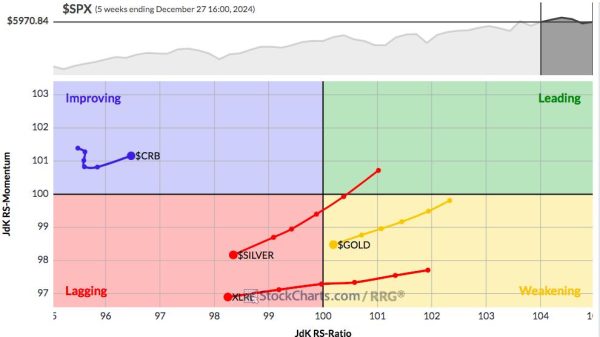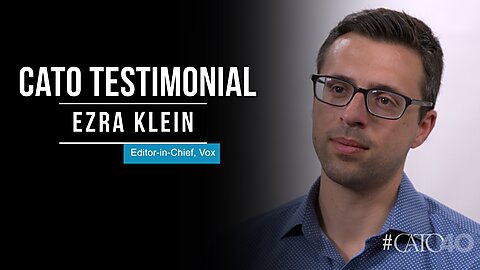Adam N. Michel
Last night, eight Republican presidential hopefuls faced one another on stage to vie for primary voters’ support. The debaters discussed the economy, foreign policy, education, crime, abortion, and climate change. Despite a few passing mentions, tax policy was almost entirely absent.
This absence is notable, as the next president will have an unprecedented opportunity to build on the success of the 2017 Tax Cuts and Jobs Act. Without Congressional action, the 2017 law will expire, and taxes will automatically increase for virtually every American at the end of 2025.
The 2017 tax cuts made historic reforms to the tax code. The next president and Congress must think critically about what additional improvements can be made. The U.S. fiscal situation has also changed dramatically. Fueled by higher spending, deficits continue to climb despite federal tax revenue as a percent of the economy reached a two‐decade high last year (and is projected to remain above the historical average).
What follows is a brief guide for those Americans who may need to remember the specifics of the 2017 reforms or need to begin thinking about what should be done in 2025.
What was in the 2017 tax cuts?
In addition to cutting individual tax rates, the reforms made it easier for millions of Americans to pay their taxes, simplified family benefits, and reduced some special interest tax subsidies, among many other reforms. The law also cut the corporate income tax rate from the highest rate in the developed world to about average (this is the primary permanent tax cut) and made other significant business tax changes. As a result, the law boosted economic growth, investment, wages, and jobs.
Some of the most significant changes that expire in 2025 include:
Lower individual income tax rates and thresholds. More than nine out of 10 taxpayers received a tax cut or saw no change in their tax bill. According to estimates at the time, only 4.8 percent of taxpayers were projected to see a tax increase, and more than 80 percent of taxpayers benefited from a tax cut.
Nearly doubled standard deductions of $12,000 for single filers and $24,000 for married couples filing jointly in 2018. Doubling the standard deduction and curtailing the value of some itemized deductions moved more than 29 million taxpayers from the more complicated itemized system to the standard deduction.
New $10,000 cap on the state and local tax (SALT) deduction and a $250,000 reduction (to $750,000) to the cap on the mortgage interest deduction for new mortgages. The phase‐out of itemized deductions (Pease limitation) and other smaller itemized deductions were eliminated.
Doubled child tax credit to $2,000 and increased the phase‐out threshold. The refundable portion of the credit increased, a new $500 non‐child dependent credit was added, and the personal and dependent exemptions were repealed.
Reduced number of families who must pay the estate tax and the individual alternative minimum tax (AMT).
Full immediate deduction (expensing) for business investments in equipment and machinery.
New 20 percent deduction for certain pass‐through business income, repealed the domestic production activities deduction, and repealed the corporate AMT.
Tax Reforms Candidates Should Consider
The Republican presidential candidates—and every other candidate running for office—need to think critically, not just about how to keep taxes from increasing, but how to make additional fiscally responsible reforms to the U.S. tax code.
Extending the 2017 cuts is estimated to lower revenue by more than $3.3 trillion before accounting for increased economic growth. However, economic growth cannot cover all, or even most, of the lost revenue. Instead, Congress will need to consider reforms to spending programs and special interest tax loopholes if they want to keep taxes from rising.
In addition to making the 2017 law permanent, there are other reforms that candidates should consider:
Individual brackets and tax rates. Continue to lower marginal income tax rates, consolidate tax brackets, and cut the capital gains tax rate.
Child and education subsidies. There are currently six different ways a child might qualify a family for tax benefits and more than twice as many ways the tax code subsidizes higher education. In 2025, these tax subsidies should be simplified, if not outright repealed.
Limit itemized deductions. Limits on the SALT and mortgage deductions moved all but 10 percent of Americans to the simpler, larger standard deduction. Congress should continue to limit itemized deductions, ideally eliminating them entirely.
Create Universal Savings Accounts (USAs). USAs operate like retirement accounts but without restrictions on how you spend the funds. Without withdrawal restrictions, taxpayers save more and get to decide how to spend their savings without dictates from Washington.
Permanent business expensing. Business expensing has already begun to phase out, depressing new investment and exacerbating the already heightened risk of recession. Congress should permanently restore full expensing for R&D and equipment and expand the same treatment to longer‐lived structures.
Repeal business tax subsidies. Well over a trillion dollars in business tax subsidies should be repealed to offset lower tax rates. These include dozens of tax credits for energy production, housing construction, drug development, research spending, employment, and railroads.
Reject the OECD minimum tax, make other business reforms. The U.S. can opt out of the OECD‐Biden tax cartel by lowering the corporate tax rate to 15 percent and moving to a fully territorial system that disregards foreign profits and taxes. Additional reforms could equalize the treatment of different types of businesses through corporate integration and rationalizing the treatment of interest in the tax code.
























